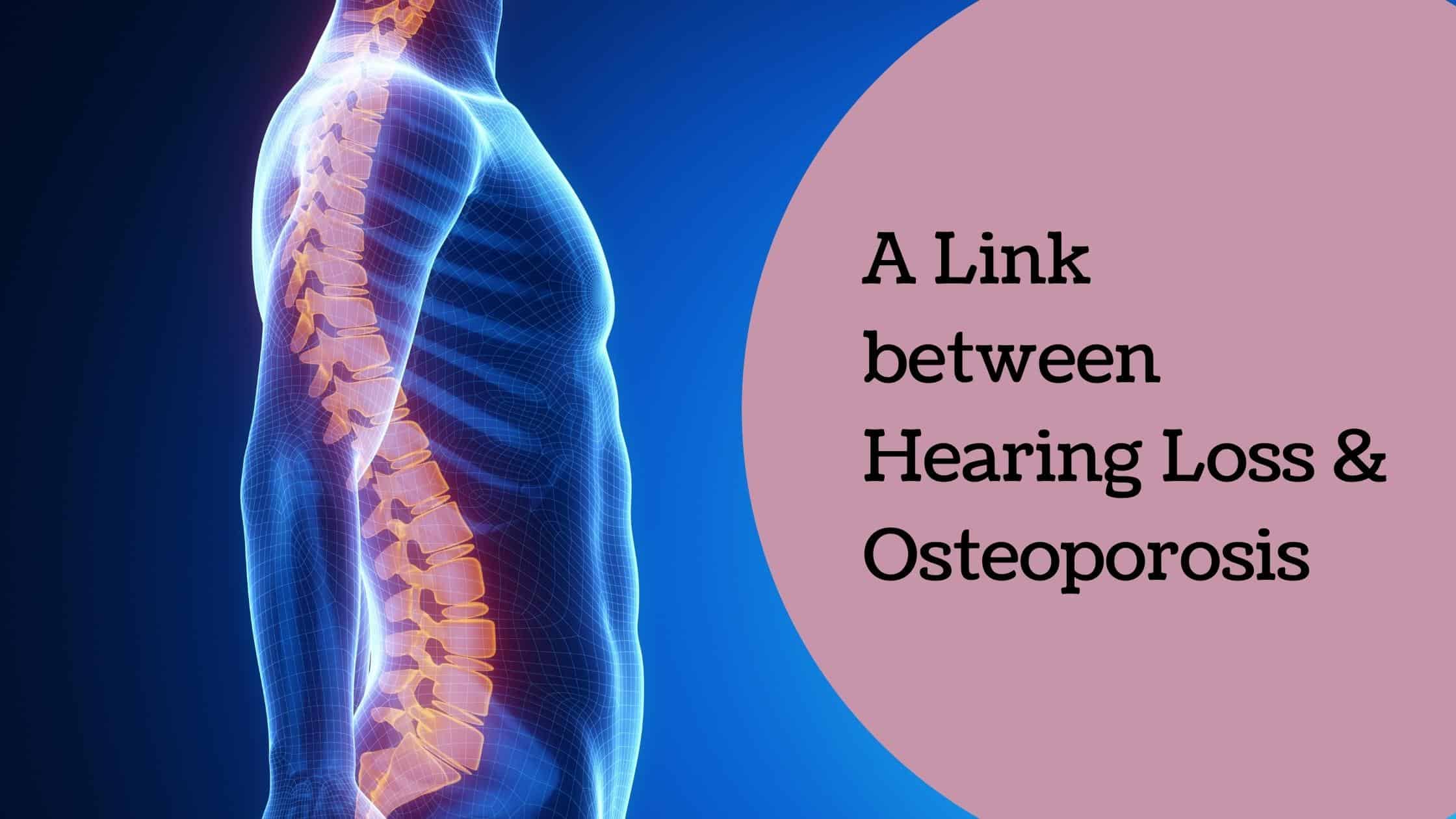
- How to Properly Clean Your Hearing Aids - April 15, 2024
- How to Handle Ear Infections With Hearing Aids - April 5, 2024
- Strategies for Working Professionals with Hearing Loss - March 27, 2024
Osteoporosis is a condition that affects our bones as we age. Our bones are composed of tissue that regenerates. Osteoporosis occurs when we cannot regenerate the new tissue at a rate proportionate to the loss of bone density. When this imbalance occurs, our bones are more susceptible to fracture and breakage. This is also why slips and falls have a devastating effect on our health and mobility when we have Osteoporosis.
According to the National Osteoporosis Foundation, about 10 million Americans have Osteoporosis. In contrast, another 44 million have inadequate bone density, putting them at risk.
The Link Between Osteoporosis And Hearing Loss
Did you know that the three smallest bones in our body are contained in our ears? They are known as ossicles and are referred to as “hammer, anvil, and stirrup” due to their shapes. These tiny bones in our middle ear play a crucial role in our hearing process. Ossicles conduct sound waves from the eardrum to our inner ear. Their role is so vital that if they are damaged in any way, it results in hearing impairment.
A Study Finds A Link Between Hearing Loss And Osteoporosis
In 2015, the Journal of Clinical Endocrinology & Metabolism published an influential study establishing the link between osteoporosis and hearing loss. A comparative study in Taiwan analyzed the data of over 10,000 residents with Osteoporosis between 1999 and 2008, with over 31,000 of those that were free of Osteoporosis.
An examination of the results in 2011 showed a 1.76- fold in risk of developing hearing loss for those with Osteoporosis.
According to Kai-Jen Tien, MD of the Chi Mei Medical Center in Taiwan and an author of the study, more people are developing Osteoporosis worldwide. Our research suggests that they are in danger of sensorineural hearing loss, bone fractures, and other complications.
Who Is Most Susceptible To Osteoporosis?
The most common factors determining those most susceptible to Osteoporosis are; age, sex, race, lifestyle choices, medications, physical build, and medical conditions. Everyone is vulnerable to Osteoporosis as they get older. Women, specifically white and Asian, are at higher risk, especially after entering menopause.
People with smaller frames are at higher risk since there is less bone mass to draw from. Lack of regular exercise contributes to Osteoporosis, as well as smoking tobacco. Certain medications and medical conditions such as cancer and rheumatoid arthritis are significant contributors.
What you can do to reduce the risk
We have many ways at our disposal that will benefit our hearing and our overall health. Maintain healthy, consistent body weight. In addition, monitor your intake of protein and calcium.
Protein is an essential nutrient for our bones’ health. It is found in plentiful amounts in almonds, chicken, tofu, oats, and cottage cheese. If you are a vegetarian, vegetables, seeds, soy, and dairy are viable protein sources. Supplements are readily available if you get enough protein through your regular meals.
Calcium is a mineral necessary for the strength of our bones. It is easily found in dark green leafy vegetables, soy, fish, and fortified cereals. People over 50 years of age need 1,200 mg daily. Adults between the ages of 18 and 50 should take 1,000 mg. It is highly advised to regulate your intake.
Vitamin D is necessary for calcium absorption. If you can’t get a daily dose of natural sunshine for any reason it is present in fatty fish, like tuna, mackerel, and salmon.
Some dairy products, orange juice, soy milk, cereals, cheese, liver, and egg yolks. There are also supplements available in your regular daily vitamins and a suggested amount of 600 IU (international units) a day for people over 50.
Those with Osteoporosis should be aware that they should seek medical attention right away if they have hearing loss.
According to Kai-Jen Tien, patients with Osteoporosis should seek medical attention if they have hearing loss. So if you’ve been diagnosed with Osteoporosis, you should get your hearing checked. Set up an appointment for a hearing test with us today. We can accurately diagnose your hearing and ensure it remains as healthy as possible for many years.
